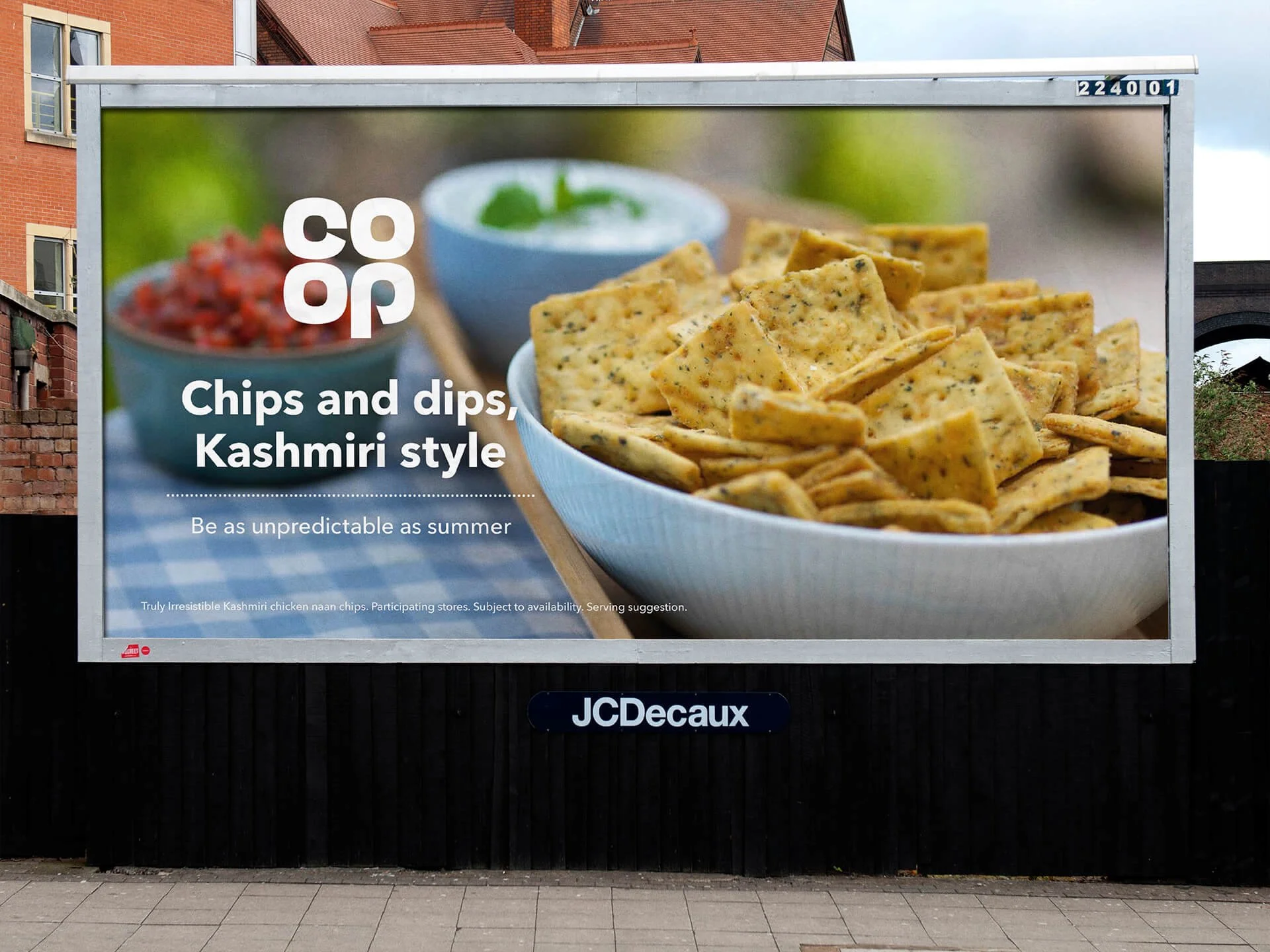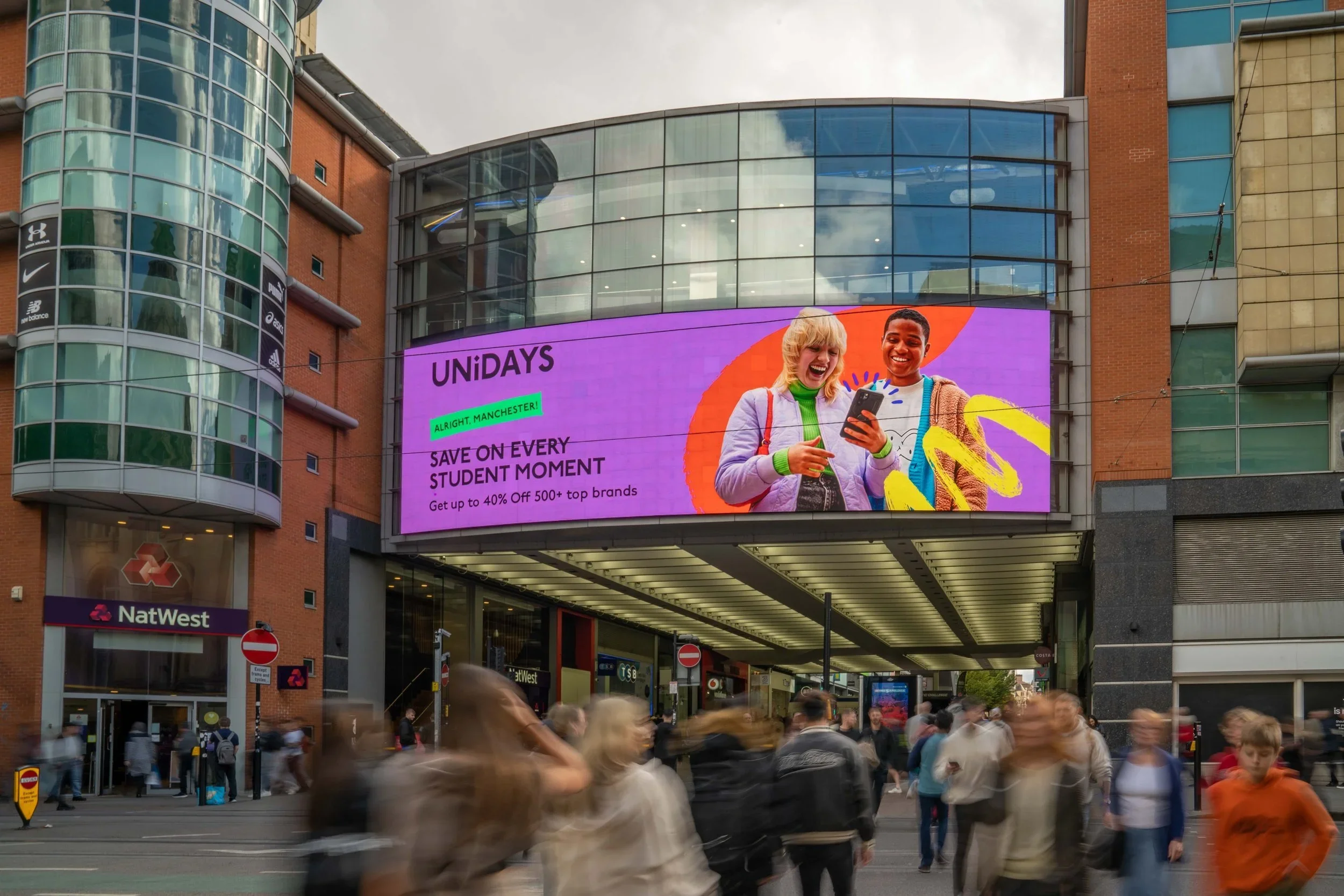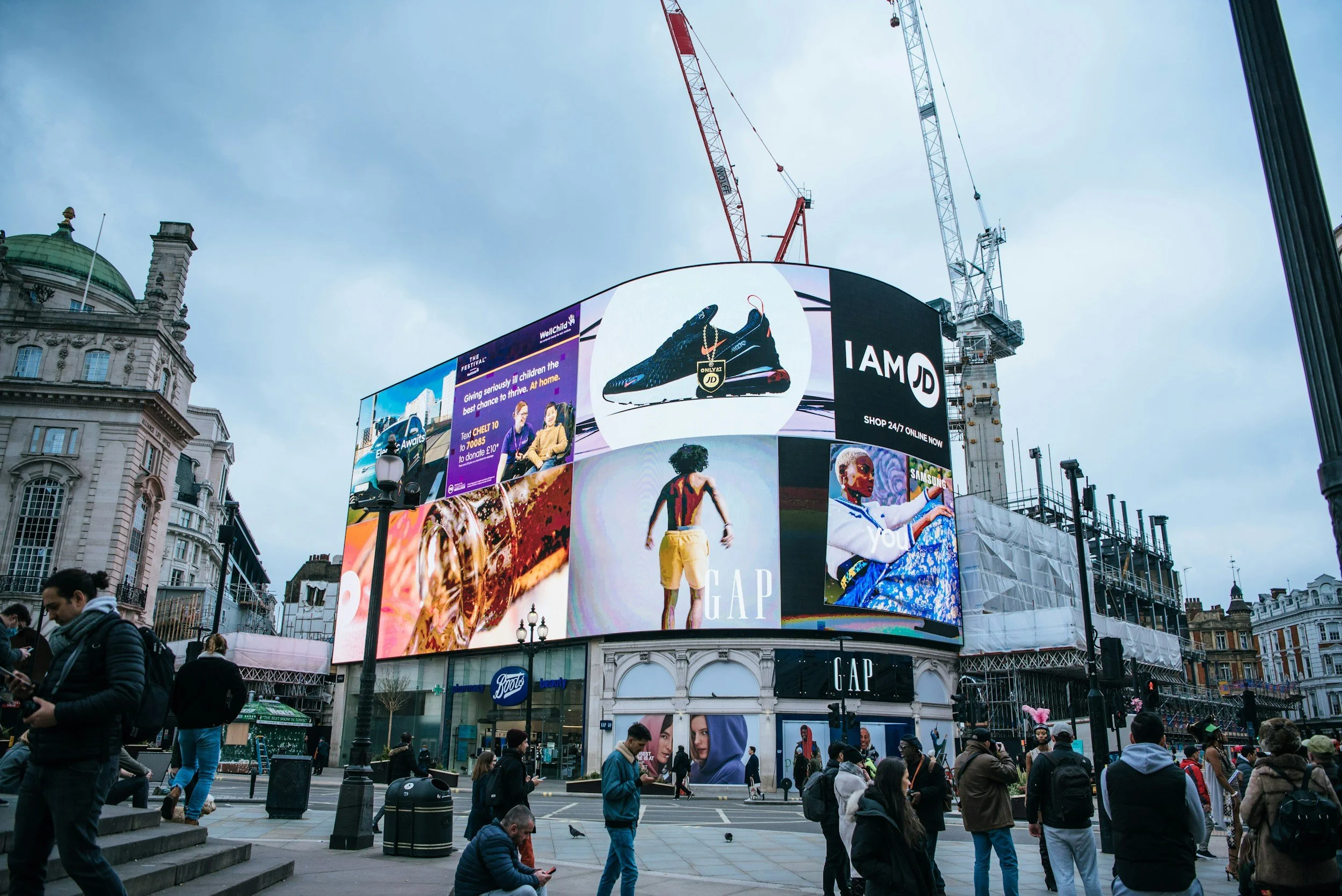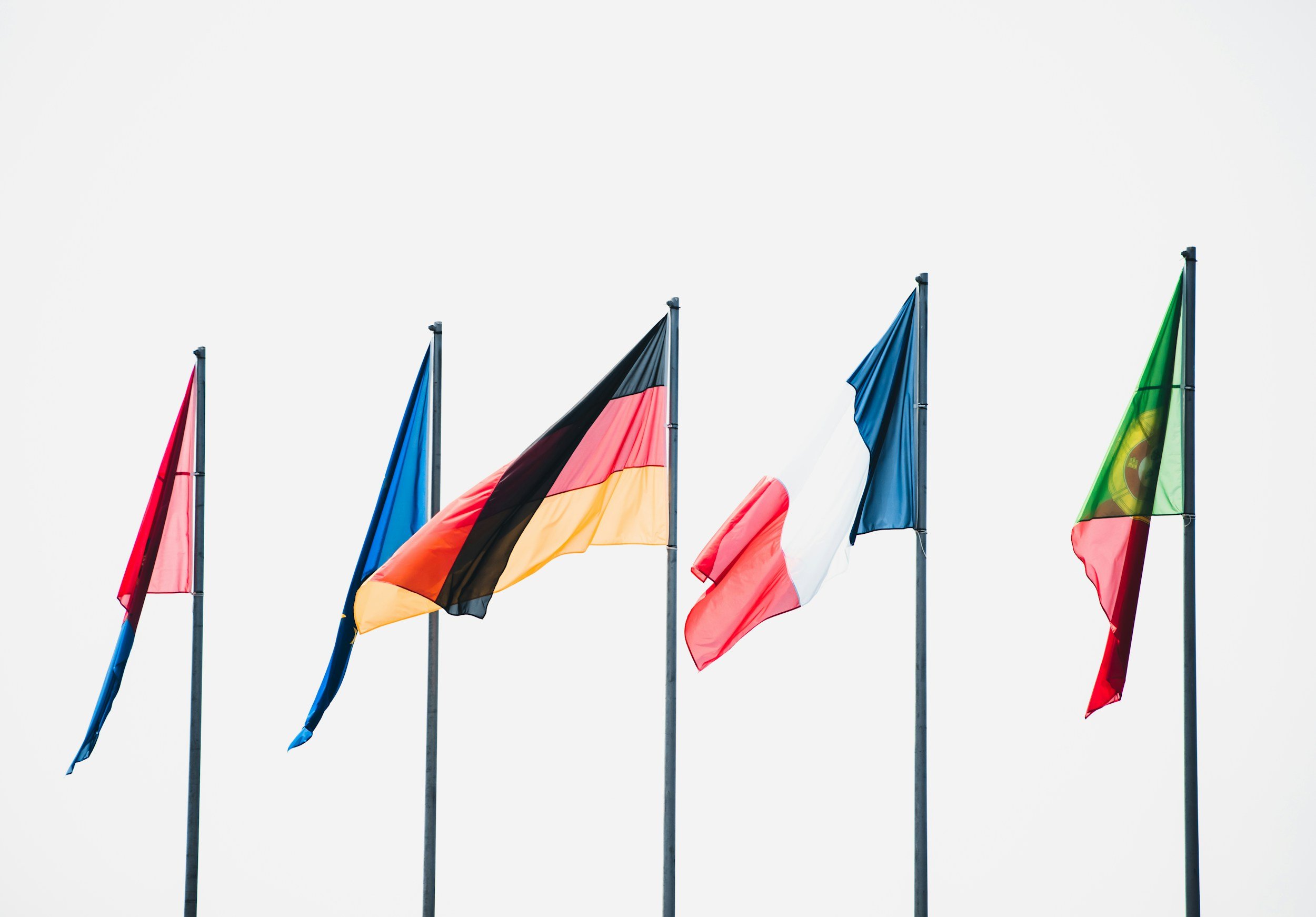What Is Integrated Marketing?
Key Takeaways
Integrated marketing combines multiple channels into a single, cohesive strategy, ensuring customers experience the same brand message wherever they engage, from billboards to social media. This consistency boosts recognition, recall and trust.
Relying on one channel limits impact. Blending outbound advertising like billboards and TV with inbound tactics such as social media or content marketing balances mass reach with targeted engagement, covering all touchpoints effectively.
The benefits are efficiency, effectiveness and stronger results. Integrated campaigns reduce wasted spend, repurpose assets across formats, and build lasting brand awareness. Leading businesses increasingly adopt this multi-channel approach to stay ahead.
Integrated Marketing Campaign will have different channels and medias such as Bus Advertising as seen here.
Integrated marketing refers to a strategic approach in marketing that combines various promotional elements and communication channels to deliver a unified and seamless brand message to target audiences. Let’s dive right in!
Integrated marketing is the optimal approach for brands keen to maximise their impact on the market, grow their audience across key demographics, and generate the highest number of impressions from their target customer groups.
Rather than adopting one tried-and-tested marketing methodology, integrated marketing blends placements with digital and physical mediums – ensuring that businesses benefit from repeat exposure, augmented brand recognition and a faster pace of growth.
How Does Integrated Marketing Work?
The premise is simple – businesses that rely on one form of marketing, be that advertising on billboards, PPC campaigns or transport ooh advertising, are effectively marketing their brand to a limited audience with restricted outcomes.
Introducing an integrated marketing strategy involves the development of a cohesive, strong brand voice and creating unified messaging across a number of touch points and channels based on those most relevant to your customers and organisation.
Regardless of where, when and how a consumer engages with your brand, their interactions will be built on a foundation of consistent communications, where all your content, graphics, media and messaging are designed to have the same impact, personality and tone.
The value of frequent exposure is also not to be overlooked. If a customer sees your brand advertised, say on a poster during their commute, then sees a social media paid placement, followed by a billboard, they are already substantially more likely to remember your logo, product or business than if they had experienced just one of those interactions.
Integrated marketing ties together all the pieces, ensuring customer experiences are positive, creating familiarity and growing brand awareness sustainably and at scale.
Why Use Multi-Channel Marketing Rather Than One High-Performing Advertising Placement?
As we’ve explained, repetition and messaging are key to a successful integrated marketing campaign. While some marketing channels may be perceived as producing better results due to footfall, engagements, impressions or cost per view, there is a balance between the tactical use of resources and depending on one channel to produce all lead generation opportunities.
Marketing channels work very differently, generally grouped into outbound and interactive:
Outbound marketing refers to campaigns that initiate contact from the company, covering advertising like public billboards, promotional placements on the local tube or bus network, and capturing attention through TV adverts or print media.
Interactive or inbound marketing is more targeted, using forms like social media advertising, webinars, digital events, case studies and blog posts. These marketing activities are more measurable and tailored, designed to reach defined audiences.
The challenge from a commercial perspective is that each has possible limitations. For instance, an interactive marketing campaign might be focused on a core consumer group but have the potential to miss new opportunities or demographics in a fast-evolving market.
Outbound marketing is usually more broad-scope and intended to have mass appeal – campaigns can reach millions of viewers, but only a proportion of that audience will be likely to convert into a paying customer.
Blending both approaches allows businesses to drive higher brand recognition and recall while also harnessing the benefit of precision-targeted campaigns, ensuring they are covering all the bases.
Understanding the Principles of Integrated Marketing
Each marketing channel and environment will differ, depending on how your customers engage with your advertising, what they are likely to be doing when consuming content, and where they will view your promotions.
Multiple Channels
That could include seeing campaigns on a smartphone, TV, or billboard, hearing about your business during a radio show or podcast or viewing promotions when browsing online using a laptop.
Coherent messaging
Coherent messaging is essential, where the same customer who sees multiple styles and formats of advertising makes an instant and natural connection, associating the promotions they see with your brand, service, product or offer.
This element is why consistency in branding and tone is so important, where every placement has the same feel and look. While that doesn’t mean you’d necessarily use an identical graphic for a large-profile billboard as you might on a PPC ad, it does mean you need a cohesive colour palette, slogan, logo or design focal points that appear universally on all marketing formats.
A central strategy
It's also vital that integrated marketing is created around a central strategy so all the moving parts complement one another. Customers rarely make buying decisions based on one, two or even three interactions with a brand, so the idea is to build a relationship, communicate your value proposition, and cement awareness of your offering.
The Advantages of Working With an Integrated Marketing Agency
Across the marketing space, the overarching goals are efficiency and effectiveness, creating campaigns that deliver positive outcomes without over-using resources and advertising budgets but having the maximum impact on brand revenues.
The average UK consumer is exposed to over 350 adverts every day, many providing just seconds of exposure. Integrating communications across multiple media and placements ensures you develop a narrative that is always consistent but can be replicated within as many channels as you wish and make the most of even time-limited exposure.
According to Think with Google, market-leading businesses are 1.5 times more likely to have an integrated marketing strategy, with 66% of top marketers confirming that a multi-channel and multi-device approach is the best way to deliver on customer experiences.
By allocating resources based on research, data and an understanding of each marketing environment, organisations can reduce the costs of content creation, using the same baseline content across all channels, making tweaks to formatting and graphics as necessary based on the form and size of each advertising space.
One Day offers comprehensive services, ensuring the brands we work with can leverage our expertise in creative, digital marketing and media promotions, utilising our knowledge across each channel to create campaigns that deliver superb results.
To learn more about integrated marketing, how to improve your marketing strategy, and the promotional channels that present the best opportunities for your business, please get in touch with One Day Integrated marketing agency.












